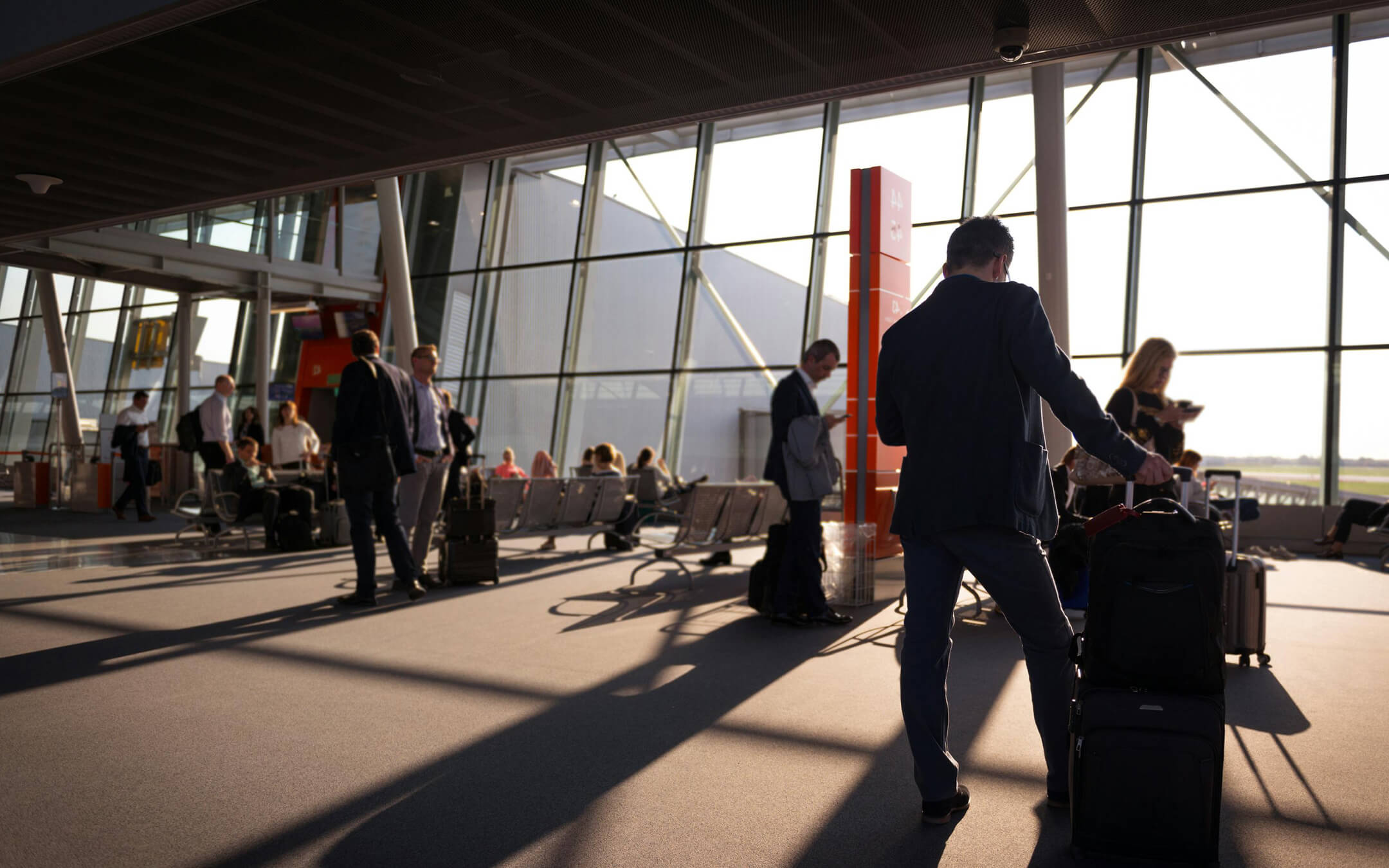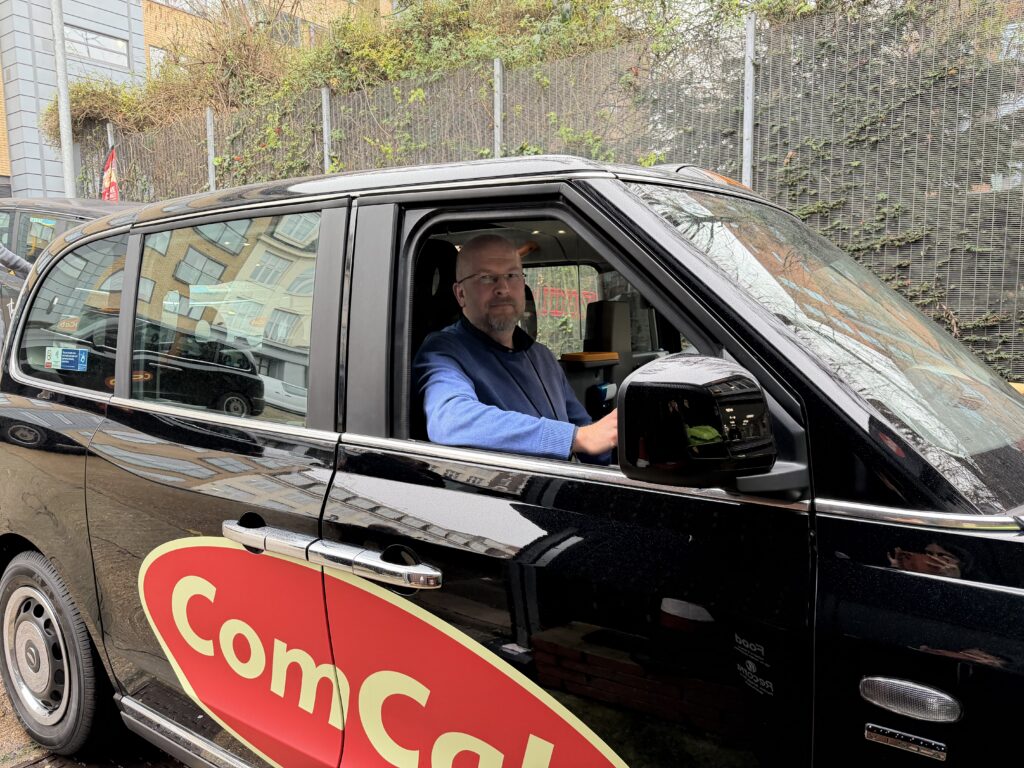
The Travel with Purpose Equation: Let’s Do the Maths
It's No Longer a Question of Whether to Travel, it's a Question of Why
For over two decades, I have worked across both sides of the corporate travel table, as a buyer for a global institution and as a supplier to complex, highly regulated organisations. I have seen first-hand how travel can either be treated as a tactical cost or used as a powerful lever for commercial growth. The difference lies not in the budget, but in the mindset, how travel is valued, and how it is managed.
Today, business travel stands at a pivotal point. It is no longer just about moving people from one location to another. It is about delivering outcomes. It is about aligning travel with strategic business priorities, employee expectations, and sustainability goals.
In the United Kingdom, this shift in travel thinking is taking place alongside a renewed national focus on infrastructure and economic expansion. Chancellor Rachel Reeves has expressed strong support for the expansion of Heathrow Airport and the development of the Oxford–Cambridge corridor, describing such investment as “badly needed” to boost productivity, increase exports, and reinforce the United Kingdom’s global economic position.
These domestic ambitions are further strengthened by the recent UK–EU trade agreement. The agreement signals a commitment to re-establish smoother mobility between the two markets, including the proposed use of EU e-gates for UK nationals, a Youth Mobility Scheme to support cross-border talent development, and plans for the mutual recognition of professional qualifications. These are not abstract policy decisions. They are enablers of frictionless business, workforce mobility, and international expansion.
From a business travel perspective, these developments are not peripheral, they are catalytic. Enhanced infrastructure and reduced cross-border barriers mean that purposeful travel is now more essential than ever. Organisations must be ready to move quickly, connect meaningfully, and act globally. Travel creates the conditions to do all three.
For business leaders, the takeaway is clear: this is the right moment to reassess your travel programme, not through the lens of volume, but through relevance. It is about ensuring every trip supports business goals, reflects your organisation’s values, and drives performance in a changing global context.
Historically, return on investment (ROI) in business travel has been measured through a narrow financial lens, direct revenue impact, client wins, or cost efficiency. While these measures remain valid, they are no longer sufficient. In an environment shaped by hybrid work, employee well-being, and ESG imperatives, the ROI model must evolve.
This shift is widely recognised by industry commentators. Business Travel News Europe recently argued that “in 2025, travel managers should be reassessing how they calculate ROI,” pointing to the need to consider wider measures of value, such as carbon impact, duty of care, and employee outcomes. This reinforces what many in the industry already know: traditional metrics do not reflect the full contribution of travel in today’s business environment.
This is what led me to define my own version of the Travel with Purpose equation, a modern framework that reflects the full spectrum of what business travel must now deliver.
Business Travel = Strategic Investment + Employee Experience + Sustainability
In this model, employee experience is not an abstract ideal; it is grounded in real, measurable factors that influence how people travel and how they perform. It includes the opportunity to incorporate bleisure, enabling employees to find balance and recharge during work-related trips. It reflects the importance of service quality, where reliable, safe, and seamless travel experiences contribute to productivity and well-being. And it is enabled by trusted supplier partnerships that align with the organisation’s goals and culture.
This is not simply a theoretical formula. It is a practical, strategic lens, and one that invites a clear call to action. If we are serious about unlocking value, retaining talent, and delivering on ESG commitments, then let us do the maths. The return on travel is no longer one-dimensional. When business trips are designed with purpose, the sum is greater than its parts.
From Policy to Purpose
In a hybrid and digitally distributed working environment, the role of travel is changing. It is no longer about frequency or visibility. It is about creating high-impact connections, winning business, reinforcing culture, and accelerating innovation.
Progressive organisations are moving away from blanket policies and toward tailored, insight-led strategies. They are focusing on the trips that matter most; the ones that unlock commercial opportunities, build trust, and enable collaboration.
One trend making a notable return is ‘bleisure’, the blending of business and leisure travel. I first encountered the term back in 2010, when it felt niche and fringe. Its resurgence today is telling. It reflects changing expectations around flexibility, experience, and well-being; and it is being embraced by forward-thinking organisations as a legitimate contributor to workforce satisfaction and productivity.
When thoughtfully supported, bleisure travel enables individuals to decompress, experience new environments, and return to work recharged. It boosts morale, enhances productivity, and fosters longer-term engagement, all of which contribute directly to business success. It can also align with sustainability priorities by encouraging longer, consolidated travel, rather than frequent, short-haul trips.
The most forward-looking travel programmes today are being co-designed by commercial, HR, and sustainability teams. They are being measured not only by cost, but by contribution, to business outcomes, to employee satisfaction, and to the broader organisational mission. Bleisure, once a fringe idea, is now a meaningful part of that equation.
Why the Data Supports This Shift
Trends across both consumer and corporate travel consistently reinforce this new direction.
- ABTA reports that 84 percent of UK adults took a holiday in the past year, despite economic uncertainty. Travel remains a clear priority, chosen for its restorative, enriching, and experiential value.
- American Express’s 2025 Global Travel Trends Report found that 78 percent of travellers prefer to spend on experiences rather than possessions, a mindset that is increasingly influencing how business travel is planned and justified.
- Well-being is front of mind. One in three travellers now builds wellness into their trips. In response, organisations are adapting policies to include greater flexibility, decompression time, and support for mental health.
- SAP Concur’s 2025 trends highlight the growing importance of visibility, compliance, and traveller confidence. Business leaders are demanding better insights into how travel supports organisational objectives, and where it should be refined.
These insights all point to the same conclusion: travel is no longer a routine operational expense. It is a deliberate investment that must deliver value; across multiple dimensions.
What This Means for Business Leaders
There is now a strategic opportunity to reframe business travel, not as a cost to contain, but as a driver of value.
A purposeful travel strategy should:
- Focus on journeys that deliver measurable outcomes
- Support the needs, safety, and well-being of employees
- Advance sustainability commitments and responsible travel goals
Crucially, it also sends a clear signal about company values. In a world where most interactions happen on-screen, the choice to invest in face-to-face connection demonstrates intent. It shows that relationships, culture, and human connection still matter, and that they are worth investing in.
The Path Forward
Organisations that succeed in this next chapter will not necessarily be the ones that travel the most. They will be the ones that travel with purpose.
Getting there requires collaboration between internal teams, strong data, clear governance, and trusted supplier partnerships. It also requires a mindset shift, one that embraces travel as a strategic lever that supports broader business ambitions.
The Travel with Purpose equation is not just a model, it is a mindset. And in a world where talent is mobile, competition is global, and sustainability is non-negotiable, it is more relevant than ever.
Partnering with Addison Lee: Turning Strategy into Action
As Strategy Partner within the Addison Lee commercial team, I support our sales team by equipping them with the insights, frameworks, and guidance needed to help clients shape smarter, more purposeful travel strategies. With decades of experience supporting complex corporate programmes, Addison Lee is well placed to work alongside clients in tailoring travel policies that reflect their evolving business needs. Whether helping to define what purposeful travel looks like or supporting global ground transport programmes through our network of international partners, we offer solutions that are scalable, sustainable, and aligned with modern workforce expectations. Our aim is not just to move people, but to create value at every step of the journey.
Purposeful travel is not just about where people go, it is about what they come back with. Now is the time to reframe the journey, rethink the value, and rewrite the playbook for travel that works.
Written By Hayley Smith-Pryor (Strategy Partner, Experience)
Sources & More Information
The New UK-EU Trade Deal: What it Means for Business Travel | Addison Lee
Mission critical: measuring the ROI of business travel in 2025 | Business Travel News Europe
Business travel in 2025: The 5 trends to watch
2025 Global Travel Trends Report | AMEX UK
Travel Trends for 2025 251124.pdf
Reeves: I am going further and faster to kick start the economy – GOV.UK











